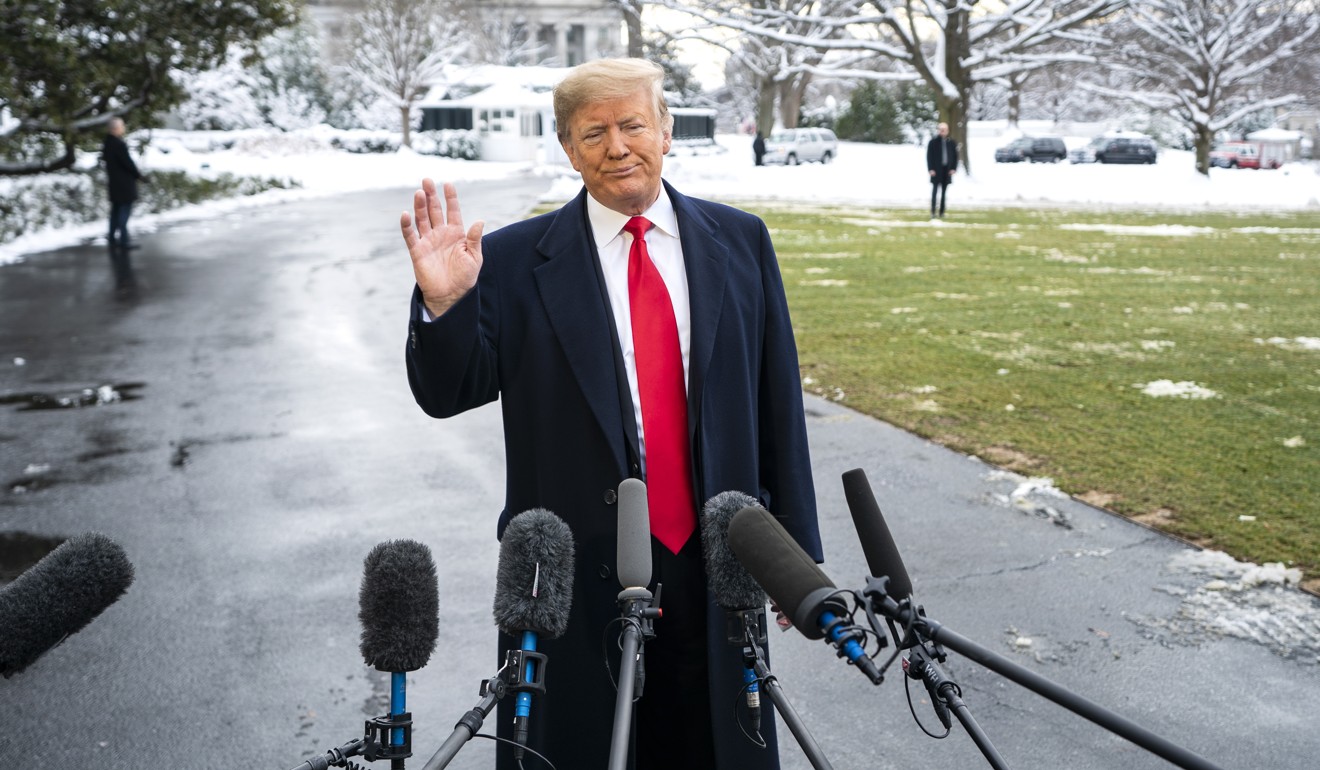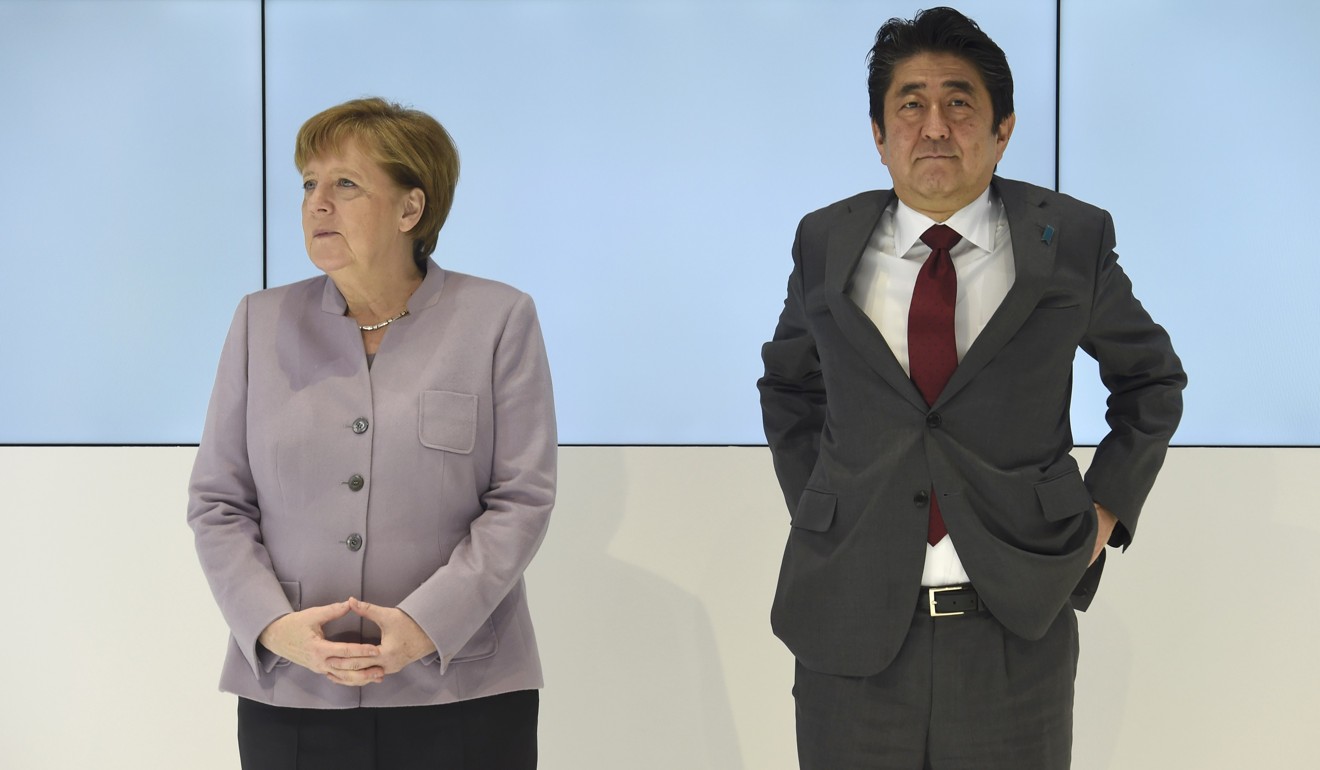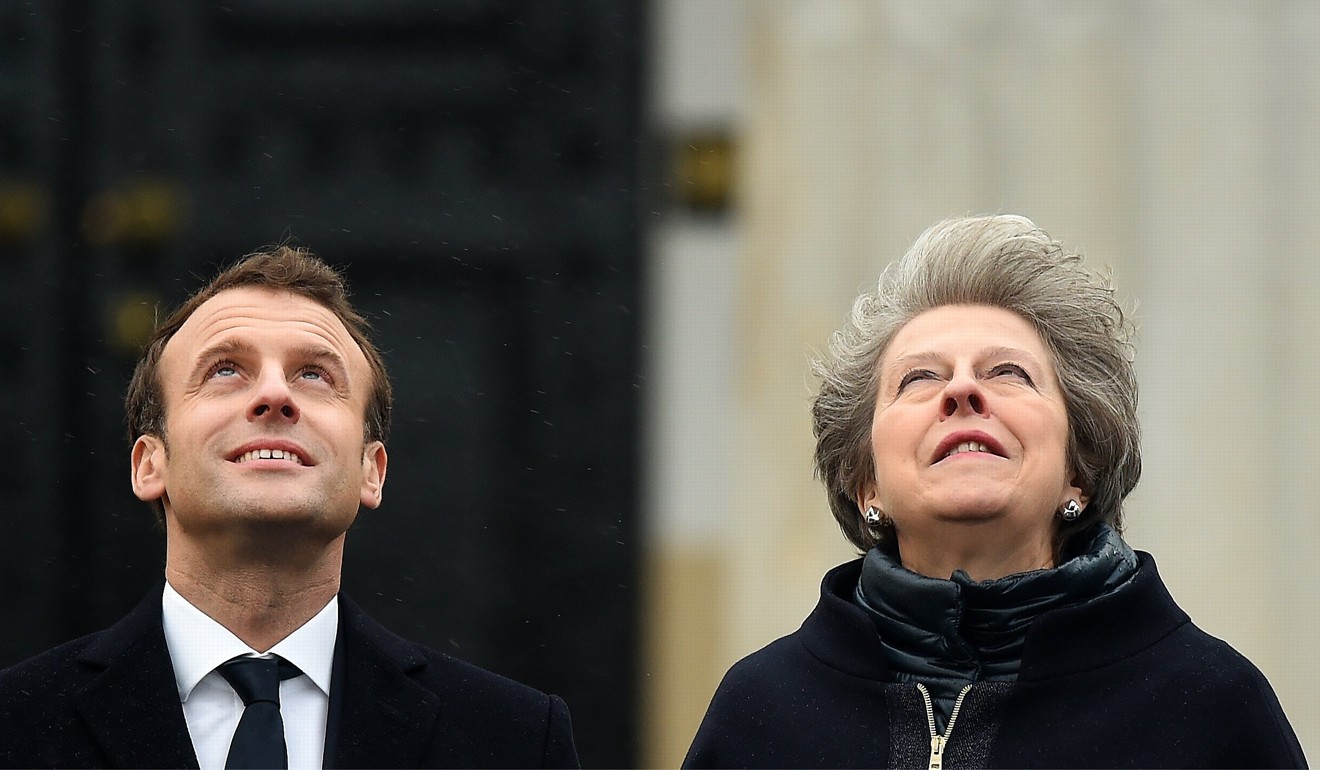
With Donald Trump absent, Wang Qishan will seek to make China’s case at World Economic Forum in Davos
- Vice-president expected to convey message on contentious issues to delegations from other countries including Europeans, Japanese and South Americans
- ‘Firefighter’ will also try to convince corporate executives and opinion leaders

There will be no US delegation, French president or British prime minister at Davos next week, but analysts say that will not make Chinese “firefighter” Wang Qishan’s task – delivering Beijing’s message to the world’s political and business elite – any easier.
The White House on Thursday cancelled its ministerial-level delegation’s trip to the World Economic Forum in the Swiss resort town from January 22-25 after US President Donald Trump last week said he would not attend.
The US team was to be led by Treasury Secretary Steven Mnuchin and included Secretary of State Mike Pompeo, Commerce Secretary Wilbur Ross, Trade Representative Robert Lighthizer and deputy chief of staff Chris Liddell.
Their absence from the annual gathering means Wang, China’s vice-president, will not have the opportunity to hold talks with any top US officials in Davos – meaning the key negotiations will be left to Vice-Premier Liu He when he visits Washington at the end of the month.

Zhang Yuquan, who specialises in American studies at Sun Yat-sen University in Guangzhou, said “the current atmosphere is no good” for relations between China and the United States.
“It is always better to meet than not to meet, it’s better to talk than not to talk, and better to communicate more than to communicate less,” Zhang said.
But Wang could also hold talks with and convey Beijing’s message on economic and trade issues to leaders from other countries – such as the Europeans, Japanese and South Americans – especially since the US delegation would not be there, Zhang said.
“There’s more than just the United States in the world. This is ultimately the Americans’ loss because China will now try to make its case on the global stage,” he added.

Wang will be joined at the forum by the leaders of other top economies, including Japanese Prime Minister Shinzo Abe and German Chancellor Angela Merkel.
Washington cited the ongoing partial government shutdown amid a dispute over funding for a border wall with Mexico as the reason for cancelling the Davos trip.
Problems at home will also keep French President Emmanuel Macron from attending after weeks of protests, while British Prime Minister Theresa May will also be absent while she tries to deal with the Brexit chaos.
But for Beijing, as it seeks to win confidence, global corporate executives and opinion leaders at the forum will also be the key audience, according to Wang Huiyao, director of Beijing-based think tank the Centre for China and Globalisation.

“The vice-president could also take this opportunity to demonstrate China’s firm determination and sincere commitment to further opening and globalisation, especially to the international business community,” Wang said.
“He’s good at dealing with businesspeople, as he did – and built some consensus – at last year’s Bloomberg forum.”
Wang gave a speech at a new economic forum organised by US billionaire Michael Bloomberg in Singapore in November, when he criticised “unilateralism” without naming any country.
In recent years, Beijing’s top leaders have used the Davos podium to try to present China as a business-friendly champion of globalisation.
President Xi Jinping and his chief economic aide Liu spoke at the event in 2017 and 2018, respectively. Liu is scheduled to visit Washington from January 30-31 for talks, with the end of a 90-day ceasefire in the trade war looming on March 1.
There has also been speculation that potential high-level dialogue at Davos could help to ease a diplomatic tussle over the arrest of Huawei Technologies executive Sabrina Meng Wanzhou in Canada at the request of the US.
Relations between Ottawa and Beijing have been tense since the arrest in December, which was followed by China detaining two Canadians and sentencing a third to death.
The US Department of Justice has until January 30 to make a formal request for Meng’s extradition, and Trump has said he might step in if progress could be made in the trade talks.
But Canadian Foreign Affairs Minister Chrystia Freeland said she would raise China’s actions with international political and business leaders in Davos.